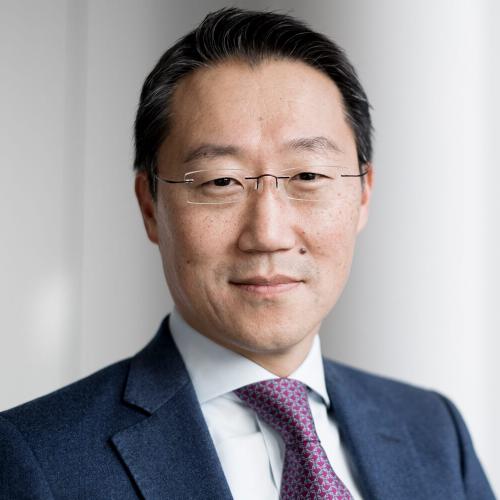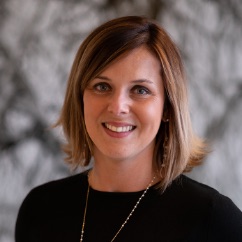Investing is a serious undertaking
Managing your wealth requires careful planning. Certain intangible principles are key to long-term performance. In an interview with the magazines Knack and Le Vif, Banque de Luxembourg’s experts explain the rules to follow and the pitfalls to avoid given the complex nature of the markets.
Could you start by describing Banque de Luxembourg?
David Schmidt: Banque de Luxembourg is a leading private bank in the Grand Duchy of Luxembourg. It celebrated its centenary last year as well its 10th anniversary in Belgium and 5th anniversary in Flanders. From its establishments in Brussels and Ghent (Sint-Martens-Latem), Banque de Luxembourg's Belgian branch has a local platform to provide its private banking expertise to family and entrepreneur clients in Belgium.
What makes you different from other private banks in Belgium?
David Schmidt: Banque de Luxembourg is a mature and completely independent private bank, an increasing rarity in this field in Belgium and elsewhere in Europe. It has always taken a long-term approach to supporting its clients, with pragmatism and responsibility, being at their side at all the important stages of their lives. The Bank is also recognised for the quality of its asset management, which is based on a proven methodology, applied with rigour and discipline.
What does this methodology consist of?
David Schmidt: Our experts employ a method of selecting quality stocks, acquired at a fair price, because it is always the price paid that determines future returns. They follow a process that identifies companies with the potential for profitable growth, not only in the short term but over longer periods, capitalising on strong competitive advantages and favourable investment trends. Investing in quality assets at a fair price is the best way to make your assets grow, with peace of mind, over the long term through all market phases, even the harshest crises.
Investing in quality assets at a fair price is the best way to make your assets grow over the long term
David Schmidt, Managing Director, Banque de Luxembourg Belgium
Where do I start if I want to invest and what are the main principles to follow?
Sandra Giunta: The very first step is to make a proper assessment of your investor profile: determine your capacity and willingness to take risks. Capacity is factual and objective, while willingness is eminently subjective because it depends on your personal perception of risk. Obviously, our needs and priorities change over time, which is why it is essential to review your investor profile at every major stage of your life. Investing requires careful planning, guided by several core principles: you should build a diversified portfolio adapted to your risk profile, always take a long-term view and above all stay invested for the long term. Hence the importance of focusing on high quality assets.
What are the pitfalls to avoid?
Sandra Giunta: Investing is not speculating. However, most investors might at some point be seduced by fashionable stocks that everyone is talking about. These are often new companies with promising prospects but whose valuation is based entirely on potential prospects. This makes them more vulnerable to the slightest disappointment.
Especially since these highly sought-after stocks are generally very expensive.
When is the best time to invest?
Sandra Giunta: There is no particular right time to invest. You just have to decide to invest as regularly as possible and as early as possible. The more regularly you invest, the more you benefit from the power of compound interest. Similarly, the longer the period over which you invest, the more you reduce the risks inherent in your investments. This is particularly true of equities, which currently offer the best prospects for a return, provided you invest in quality companies that are not likely to run into serious difficulties or even bankruptcy in the event of a market crisis.
On behalf of our clients, we practise an active shareholder approach to contribute to a better world.
Sandra Giunta, Team Leader and Head of Business Development in Wallonia and Brussels
Why do you emphasise always staying invested?
David Schmidt: There is always a temptation to try to anticipate the market. However, if there is one thing that is highly uncertain, it is what the markets will do in the short term. This was demonstrated once again in the spring of 2020 when equity markets plummeted worldwide, only to recover almost as quickly, to the surprise of most observers. Deciding to completely sell out of the markets means you have to be right twice: at the time you get out and the time you get in. History shows that after a crisis, when prices recover, it usually happens very quickly. In practice, this also means we shouldn’t panic when everything seems to be spiralling downwards. The opposite happens in times of market euphoria, when human nature relentlessly pushes us to pile into the market to get higher returns.
How can I make my investments contribute to a better world?
Sandra Giunta: Among the criteria we use to select quality stocks, we have integrated environmental, social and governance (ESG) criteria in recent years. These criteria reinforce the intrinsic sustainability of the quality companies we select. We are convinced that ignoring ESG is even an increasing risk given the transformation of our societies. Similarly, on behalf of our clients, we practise an active shareholder approach by voting at AGMs in order to influence the decisions taken and thus contribute to a better world.




